Selling a business is a complex process that requires careful planning, strategic decision-making, and a deep understanding of the market. While any business broker can guide you through the basics, the real value lies in choosing a broker with specialized industry knowledge. This expertise ensures that industry-specific nuances are accounted for, which can significantly impact the sale outcome.
Niche industries such as manufacturing, healthcare, and construction have unique challenges. From regulatory compliance to specialized buyer expectations, these complexities require a business broker with intimate knowledge of the field. A broker with the right expertise not only safeguards the process but also positions your business to maximize its value and appeal to the right buyers.
Understanding the Role of Industry Expertise in Business Brokerage
Industry expertise is a decisive factor in the success of a business sale. The complexities of valuation, compliance, and buyer expectations vary across industries, making specialized knowledge essential. A broker with deep industry insight can accurately assess a business’s value, navigate regulatory challenges, and position the business for a competitive sale.
For example, a manufacturing business broker must assess the value of machinery, raw materials, and supply chain contracts to present an accurate valuation. A construction broker must account for active contracts and ongoing projects, ensuring business continuity post-sale. Meanwhile, a healthcare business broker must navigate strict compliance measures, such as patient confidentiality laws and license transfers, which generalist brokers might overlook.
Without this specialized knowledge, brokers may struggle to position a business effectively, resulting in valuation miscalculations, compliance oversights, and difficulty in attracting qualified buyers.
The Risks of a Generalized Approach
Opting for a broker without industry-specific expertise can lead to costly mistakes. A generalist broker might:
- Miscalculate the business valuation by overlooking key assets such as proprietary technologies, intellectual property, or specialized contracts.
- Fail to meet industry regulations, leading to compliance risks, penalties, or delays in closing the deal.
- Struggle to connect with the right buyers who understand the industry’s intricacies and recognize the true value of the business.
For instance, a broker unfamiliar with HIPAA regulations in healthcare could mishandle patient data, resulting in legal consequences. Similarly, a broker without experience in construction acquisitions might not account for bonded projects or contract liabilities, creating financial risks for both buyer and seller.
A specialized broker ensures that every stage of the sale is handled with precision, from valuation and compliance to buyer targeting and negotiation. Their expertise helps protect the seller’s interests while increasing the likelihood of a seamless and profitable transaction.
Key Reasons Specialized Brokers Excel in Niche Industries
Specialized brokers stand out because they tailor their approach to meet the demands of specific industries. This targeted expertise results in more accurate valuations, better buyer matching, and smoother transactions. Here’s how industry-specific knowledge directly benefits business sales:
Manufacturing Industry
Manufacturing businesses operate with complex systems and assets that require careful evaluation. A broker specializing in this industry:
- Understands the value of machinery, equipment, and facilities, ensuring accurate appraisals.
- Accounts for inventory management and supply chain agreements, which are critical to maintaining operational stability during the sale.
- Recognizes industry-specific challenges, such as compliance with environmental standards or labor agreements.
A manufacturing business broker ensures that these elements are properly communicated to potential buyers, highlighting the business’s operational strengths and growth potential.
Healthcare Industry
The healthcare sector is heavily regulated, making it one of the most challenging industries to navigate. A healthcare-specific broker:
- Handles license transfers and ensures compliance with state and federal regulations.
- Protects sensitive data, adhering to HIPAA requirements to maintain patient confidentiality.
- Identifies buyers familiar with the operational demands of healthcare businesses, such as staffing needs and insurance reimbursements.
Brokers with healthcare expertise mitigate risks and streamline the process, ensuring that both sellers and buyers feel confident in the transaction.
Construction Industry
Construction businesses face unique hurdles, particularly when it comes to active projects and specialized assets. A construction-focused broker:
- Ensures ongoing contracts and bids are managed carefully, minimizing disruptions to the business.
- Accurately appraises heavy machinery and real estate, which are often significant contributors to the business’s value.
- Connects sellers with buyers who have the technical expertise to maintain project continuity post-sale.
A construction broker brings value by protecting the business’s reputation and operational stability.
How Specialized Brokers Maximize Business Value

Maximizing business value requires more than just setting a price. It demands a deep understanding of what makes a business attractive to buyers. Specialized business brokers bring industry expertise that allows them to identify, emphasize, and strategically present a business’s most valuable assets. Their ability to align a business with market demand ensures stronger buyer interest and higher sale prices.
Identifying and Communicating Value Drivers
Industry-specific knowledge allows brokers to highlight the most compelling aspects of a business. Instead of using a one-size-fits-all approach, they tailor valuation strategies based on what buyers in that sector prioritize.
- Operational efficiencies—Cutting-edge technology, streamlined workflows, and scalable processes that enhance profitability.
- Revenue stability—Long-term contracts, strong customer relationships, and subscription-based models that indicate predictable income.
- Regulatory compliance—Adherence to industry standards, ensuring risk mitigation and smooth ownership transition.
For example, a manufacturing business broker may highlight a company’s supply chain resilience and production capacity, while a healthcare broker may focus on patient retention and compliance with medical regulations. These targeted presentations ensure that buyers recognize and appreciate the business’s full potential.
Connecting with the Right Buyers
Finding the right buyer is about more than just listing the business—it requires strategic outreach. Specialized brokers have extensive networks within their industries, allowing them to connect sellers with serious, financially capable buyers who understand the sector.
- Industry connections—Access to pre-vetted investors, private equity firms, and business operators seeking expansion.
- Buyer vetting—Ensuring interested parties have the financial strength and strategic alignment to complete the acquisition.
- Confidential negotiations—Protecting sensitive business information while maintaining leverage throughout the sales process.
A broker experienced in construction brokerage might engage buyers with active projects seeking expansion, while a technology broker might attract investors looking for intellectual property acquisitions. This targeted approach not only streamlines negotiations but also increases the chances of securing a higher offer.
Connecting with the Right Buyers
Specialized brokers excel at connecting businesses with the right buyers through their access to industry-specific networks. They leverage established relationships to identify qualified buyers who have the financial resources and expertise needed for success.
By conducting thorough vetting and maintaining confidentiality throughout the process, brokers ensure only serious prospects are engaged. This targeted approach streamlines negotiations, reduces the time to close, and significantly increases the likelihood of a successful sale.
The Challenges of Selling in Niche Industries Without Expert Brokers
Selling a niche business comes with complexities that require specialized knowledge to navigate effectively. Without the guidance of an expert broker, sellers face numerous challenges that can jeopardize the success of the sale. From regulatory pitfalls to misrepresentation, these challenges can result in undervaluation, failed negotiations, or delayed timelines.
Regulatory and Legal Complexities
Niche industries, such as healthcare, manufacturing, and construction, have strict regulatory and legal requirements that must be addressed during the sale process. An inexperienced broker without industry-specific expertise may overlook critical compliance factors, leading to:
- Missed Licensing Requirements: In healthcare, for instance, transferring licenses or adhering to HIPAA standards is vital. Failing to address these can delay the sale or result in legal liabilities for the seller.
- Environmental Compliance Gaps: In manufacturing, ignoring environmental regulations, such as waste disposal standards or emissions requirements, can deter serious buyers and potentially result in penalties.
- Industry-Specific Approvals: Construction sales often require the smooth transfer of ongoing contracts and permits. A lack of experience in this area could disrupt ongoing projects and reduce buyer interest.
Expert brokers understand these intricacies and proactively address them, ensuring a smooth transition that satisfies both regulatory bodies and potential buyers.
Market Perception and Misrepresentation
A lack of industry knowledge can also negatively impact how a business is presented to potential buyers. Missteps in representation can lead to:
- Failure to Highlight Strengths: Businesses often possess unique selling points, such as proprietary technologies, specialized equipment, or established supply chain relationships. Brokers without niche expertise may fail to communicate these effectively, diminishing the perceived value of the business.
- Misrepresentation of Key Details: Inaccurate or incomplete information, whether intentional or not, can erode buyer trust. For example, overstating revenue potential without accounting for industry-specific risks can deter qualified buyers from proceeding.
Specialized brokers not only identify these value drivers but also know how to present them in a way that appeals to serious, qualified buyers. Their expertise ensures that the business’s strengths are accurately highlighted, fostering trust and confidence throughout the negotiation process.
Choosing the Right Broker for Your Industry

The choice of a business broker can make or break the success of your sale. Selecting a broker with proven experience in your industry ensures that you’re working with someone who understands the unique challenges and opportunities specific to your business. Here’s how to identify the right fit:
Questions to Ask Before Hiring
The hiring process begins with asking the right questions to assess the broker’s qualifications. Consider these key inquiries:
- “What experience do you have in my industry?” A broker with a track record in your sector will understand its nuances and common challenges.
- “Can you provide examples of successful transactions in this sector?” Real-world examples demonstrate their ability to navigate similar sales and achieve favorable outcomes.
- “How do you approach valuation and buyer targeting for businesses like mine?” This question helps you gauge their methodology and whether it aligns with your goals.
These questions not only help establish the broker’s expertise but also ensure their approach is tailored to your specific needs.
Evaluating Track Records
A broker’s track record is one of the strongest indicators of their capabilities. Case studies provide insight into their ability to handle sales within your industry, demonstrating how they’ve successfully navigated complex transactions. Testimonials and client references offer additional validation, showcasing their professionalism, effectiveness, and the results they’ve delivered. Success metrics, such as high closing ratios and the ability to secure above-market valuations, further highlight their expertise in maximizing business value.
Choosing a broker with demonstrated success in your industry provides peace of mind, knowing you’re working with someone equipped to deliver a seamless and profitable transaction.
Expertise Makes the Difference
Selecting a business broker with specialized industry knowledge is essential for a successful transaction. Whether you operate in manufacturing, healthcare, or construction, working with a broker who understands the nuances of your industry ensures a smooth process, maximized business value, and minimized risks. Their expertise allows them to navigate complex challenges, identify key value drivers, and connect you with the right buyers.
Partner with Lake Country Advisors for a free consultation and experience the advantage of industry-specific expertise. Let Lake Country Advisors guide you toward a seamless and profitable business sale.





